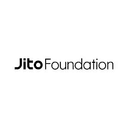Rewards
Rewards by Threat Level
The following reward terms are a summary, for the full details read our Jito Restaking Audit Competition Reward Terms
The reward pool will be entirely distributed among participants. The size depends on the bugs found:
- If one or more Critical severity bugs are found, the reward pool will be 100% of the respective reward pool, $150,000 USD
- If one or more High severity bugs are found, the reward pool will be 75% of the respective reward pool, $112,500 USD
- If one or more Medium severity bugs are found, the reward pool will be 50% of the respective reward pool, $75,000 USD
- If Low severity bugs or no bugs are found, the reward pool will be 25% of the respective reward pool, $37,500 USD
Duplicates of Insight reports are not eligible for a reward.
For this Audit Competition, duplicates and private known issues are valid for a reward.
Private known issues will unlock higher reward pools according to their severity level without any downgrade. For example, a Critical severity bug which was a private known issue would unlock the reward pool conditional on a Critical severity bug being found.
Rewards are distributed according to the impact of the vulnerability based on the Immunefi Vulnerability Severity Classification System V2.3.
Reward Payment Terms
Payouts are handled by the Jito team directly and are denominated in USD. However, payments are done in JTO on Solana.
The calculation of the net amount rewarded is based on the 7-day TWAP of JTO at the time of settlement. No adjustments are made based on liquidity availability.
Insight Rewards Payment Terms
Insight Rewards: Portion of the Rewards Pool
The "Insight" severity was introduced on Audit Competition & Attackathon programs to recognize contributions that extend beyond identifying immediate vulnerabilities. Currently, it's not an option to select the Insight severity when submitting a report. However, our team or program will designate it accordingly if applicable. "Insights" underscores our commitment to valuing all types of contributions that contribute to a more secure environment and will always be rewarded. View more information about Insights.
Program Overview
Jito (Re)staking is a multi-asset staking protocol for node consensus networks. The protocol tokenizes staked assets as vault receipt tokens for enhanced liquidity and composability. Node consensus networks can use Jito Restaking to easily customize staking parameters, slashing conditions, and economic incentives to tailor their security and tokenomics.
For more information about Jito, please visit https://www.jito.network/.
Jito provides rewards in JTO, denominated in USD.
This Audit Competition is running on mainnet. The following conditions apply:
- Bug fixes may be applied mid-contest. Any public changes will be documented in the Mid-Contest Changelog section.
- Duplicates are rewarded.
Known Issues
KYC required
The submission of KYC information is a requirement for payout processing.
Proof of Concept
Proof of concept is always required for all severities.
Prohibited Activities
- Any testing on mainnet or public testnet deployed code; all testing should be done on local-forks of either public testnet or mainnet
- Any testing with pricing oracles or third-party smart contracts
- Attempting phishing or other social engineering attacks against our employees and/or customers
- Any testing with third-party systems and applications (e.g. browser extensions) as well as websites (e.g. SSO providers, advertising networks)
- Any denial of service attacks that are executed against project assets
- Automated testing of services that generates significant amounts of traffic
- Public disclosure of an unpatched vulnerability in an embargoed bounty
- Any other actions prohibited by the Immunefi Rules
Feasibility Limitations
The project may be receiving reports that are valid (the bug and attack vector are real) and cite assets and impacts that are in scope, but there may be obstacles or barriers to executing the attack in the real world. In other words, there is a question about how feasible the attack really is. Conversely, there may also be mitigation measures that projects can take to prevent the impact of the bug, which are not feasible or would require unconventional action and hence, should not be used as reasons for downgrading a bug's severity.
Therefore, Immunefi has developed a set of feasibility limitation standards which by default states what security researchers, as well as projects, can or cannot cite when reviewing a bug report.



